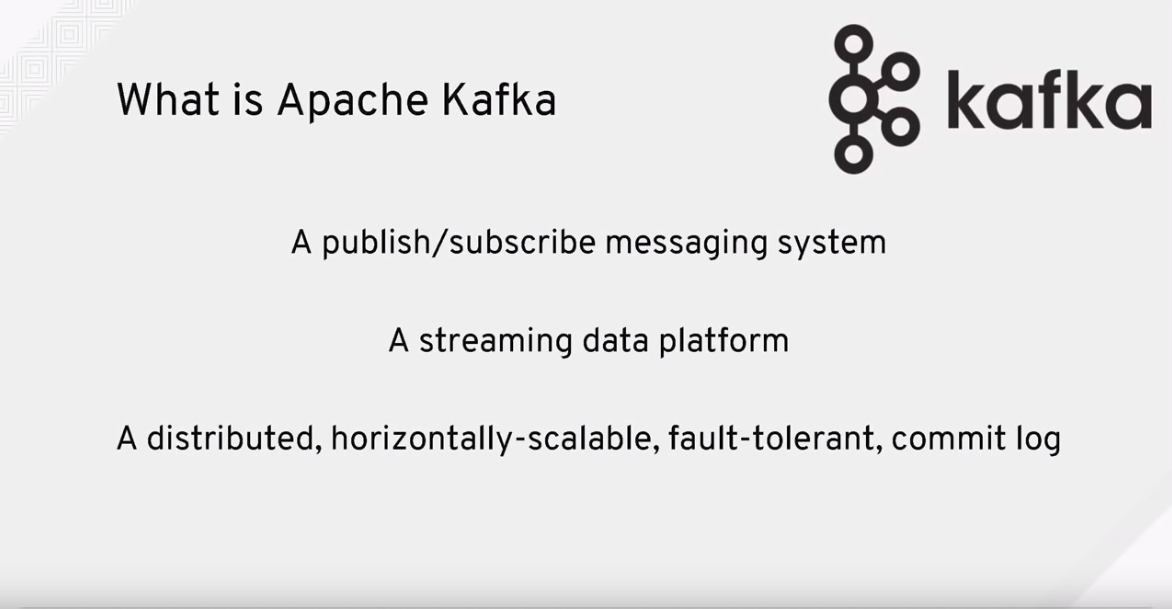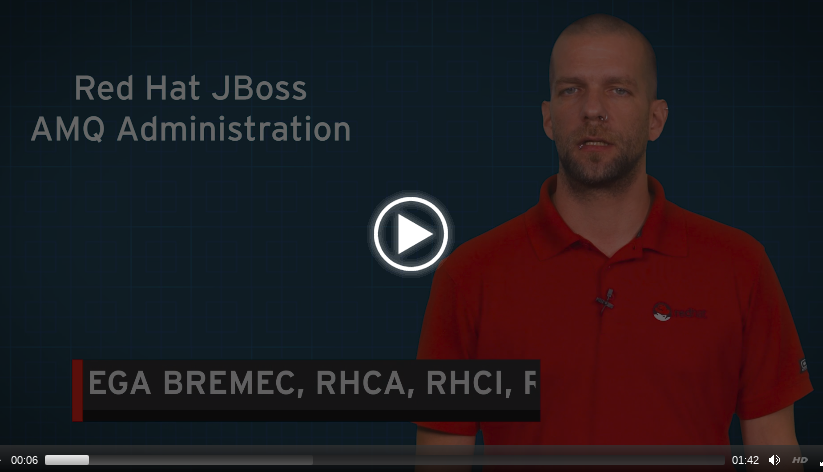Red Hat AMQ 7
Red Hat A-MQ 6.3
News
Red Hat® AMQ is a lightweight, high-performance, robust messaging platform.
AMQ Components
AMQ Broker 7.11
AMQ Broker is a high-performance messaging implementation based on ActiveMQ Artemis. It uses an asynchronous journal for faster message persistence. AMQ Broker supports multiple languages, protocols, and platforms.
Get AMQ Broker
An active subscription is required to download and receive updates.
Features
AMQ Interconnect 1.10
The AMQ Interconnect router (v1.10) uses the AMQP protocol to distribute and scale your messaging resources across data centers.
Get AMQ Interconnect
AMQ Interconnect is distributed as a set of OpenShift images or RPM packages, which are available through your Red Hat subscription.
Features
AMQ Clients 2.11
AMQ emphasizes fast and reliable communication between clients and servers. AMQ Clients supports many widely used languages and platforms and offers SSL/TLS for secure communication, flexible SASL authentication, and automatic reconnect and failover.
Get AMQ Clients
An active subscription is required to download and receive updates.
AMQP Clients
Clients that use the AMQP 1.0 message protocol.
JMS Clients
Clients that implement the Java Message Service (JMS) API.
AMQ Core Protocol JMS
AMQ OpenWire JMS
AMQ Streams 2.3
Red Hat AMQ Streams, based on the Apache Kafka project, offers a distributed backbone that allows microservices and other applications to share data with extremely high throughput and extremely low latency.
Resources
Get AMQ Streams
An active subscription is required to download and to receive updates.
Features
AMQ Online 1.7
Red Hat AMQ Online is a cloud-native, multi-tenant messaging service that you can provision easily.
Get AMQ Online
AMQ Online is distributed as a set of OpenShift images, which are available through your Red Hat Subscription.
Features
Installation & Deployment Instructions
Additional Resources
Additional Resources
Additional Resources
Additional Resources
Additional Resources
Browse All Product Knowledge
Topics
Introducing Red Hat AMQ 7
AMQ 7 Introduction
Engineering Director David Ingham introduces the Red Hat AMQ 7 product, including details on why you will want to upgrade to this latest release.
Getting started with Apache Kafka
Getting started with Apache Kafka
Jakub Scholz, Principal Software Engineer, introduces how to start a local Kafka cluster and explain its basic concepts such as topics and partitions.
Red Hat AMQ Administration
AMQ Administration Course Preview
Grega Bremec, Red Hat Senior Instructor, Middleware, Cloud, gives an overview of the Red Hat AMQ Messaging Broker and Interconnect. To learn more register for JB440.
Red Hat A-MQ 6.x in the Cloud
A-MQ 6 in the Cloud
Senior Software Engineer Dejan Bosanac discusses the Red Hat A-MQ product, including problems with large enterprise deployments, the Fuse Fabric, an overview of Red Hat A-MQ, and a look at Fuse.





